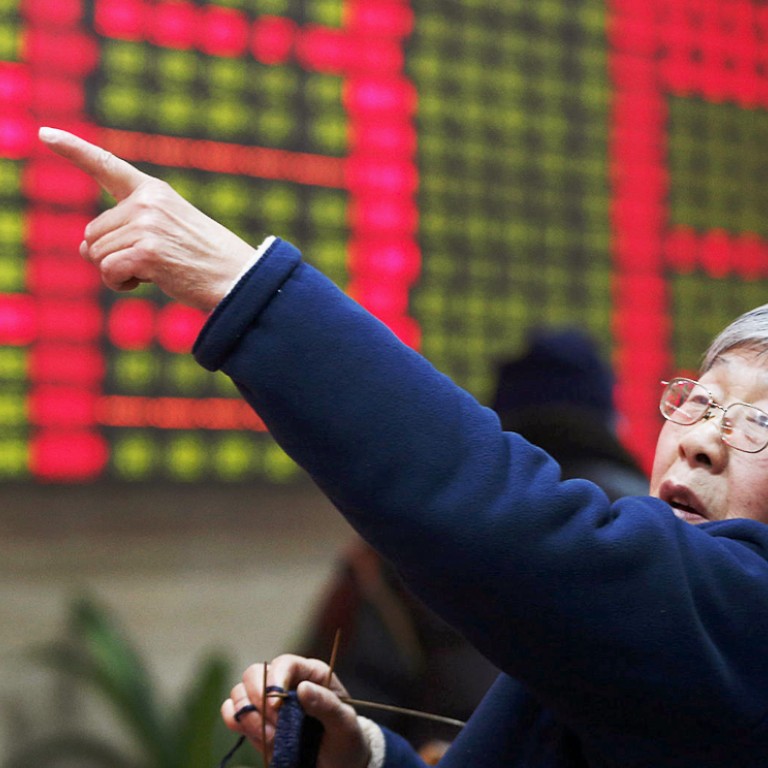
Investor interest in IPOs holds Chinese stock market hostage
Mainland investors avoid buying stocks to reserve cash for placing orders for new listings, holding back gains in the share market
So much money is chasing after China's next round of initial public offerings that the nation's US$4.3 trillion stock market has become hostage to the fundraising plans of companies seeking just US$1.3 billion.
As brokers take orders this week for the next 11 offerings, investors are bracing for short-term swings in shares.
In the six previous periods when the authorities allowed new listings, the Shanghai Composite Index fell an average 0.7 per cent in the run-up to bidding, then rose 3.3 per cent in the five days after it ended.
"It has become a very set pattern," said Wang Weijun, a strategist at Zheshang Securities "We've seen liquidity inflows and outflows during IPO periods."
Investors will probably place 1.6 trillion yuan (HK$2.02 trillion) of orders this week for the offerings, or 195 times the amount of shares offered, according to Shenyin & Wanguo Securities.
The bids were holding back gains in the Shanghai Composite Index as investors avoided buying stocks that already traded to keep their cash available, said West China Securities. The benchmark gauge rose 1.9 per cent on Monday, about half as much as the H-share index.
Investors trying to boost their odds of getting an allocation of new shares through the nation's online lottery system are borrowing money to amplify the size of their bids, driving up a gauge of overnight interest rates and prompting the central bank to inject cash into the banking system last week. Regulatory pressure to prevent overvalued listings led to an average first-day gain of 43 per cent this year.
The authorities have allowed new listings in batches this year, with a new group of companies getting approval to sell shares each month since June.
The China Securities Regulatory Commission has said it is preparing to move towards an American-style listing registration system, which would ensure issuers meet disclosure requirements while leaving investors to judge if companies are fairly priced.
The pattern of restrained stock-market performance before the bidding period, followed by a rally after it ends, may repeat this time around, according to Hao Hong, the managing director of China research at Bocom International Holdings.
In July, investors placed more than 655 billion yuan of bids for nine companies raising 3.2 billion yuan, an over-subscription 28 times that of Agricultural Bank of China's listing at the height of the nation's listing boom in 2010.
Companies that completed initial share sales this year have rallied an average 228 per cent from their offering prices, data showed.
The impact of new listings on stock-market performance was not strong enough to guide investors' buying and selling decisions, said Fraser Howie, a director at Newedge Singapore and the co-author of .
Government policy changes or economic data might outweigh the listing effect, Howie said.
"I would be cautious on trading on this because the underlying mechanic is less than you think," he said. "There is some draining effect, but the argument is more psychological."
The People's Bank of China added money to the banking system on November 21 as a cash shortage stemming from new share sales drove up money market rates, according to two people with direct knowledge of the matter who asked not to be identified. The monetary authority later that day announced its first interest rate cut since 2012.
Six of the past seven reductions to interest rates and reserve requirements have been followed by declines in stock prices over the next two months, the data showed.

